1. CRIMINAL CONTEMPT
The Madras High Court found activist and YouTuber A Shankar, popularly known as ‘Savukku’ Shankar, guilty of criminal contempt and sentenced him to six months’ imprisonment for his remarks that the “entire higher judiciary is plagued by corruption”.

About:
- According to the Contempt of Courts Act, 1971, Criminal contempt means the publication (whether by words, spoken or written, or by signs, or by visible representations, or otherwise) of any matter or the doing of any other act whatsoever which
- scandalises or tends to scandalise, or lowers or tends to lower the authority of, any court; or
- prejudices, or interferes or tends to interfere with, the due course of any judicial proceeding; or
- interferes or tends to interfere with, or obstructs or tends to obstruct, the administration of justice in any other manner.
- Contempt of court may be punished with simple imprisonment for a term which may extend to six months, or with a fine of maximum Rs 2,000, or with both.
2. BLOOD DONATION IN INDIA
India scripted a new world record of maximum number of blood donations in a single day on the occasion of the 72nd birthday of Prime Minister Narendra Modi under 'Raktdaan Amrit Mahotsav'.
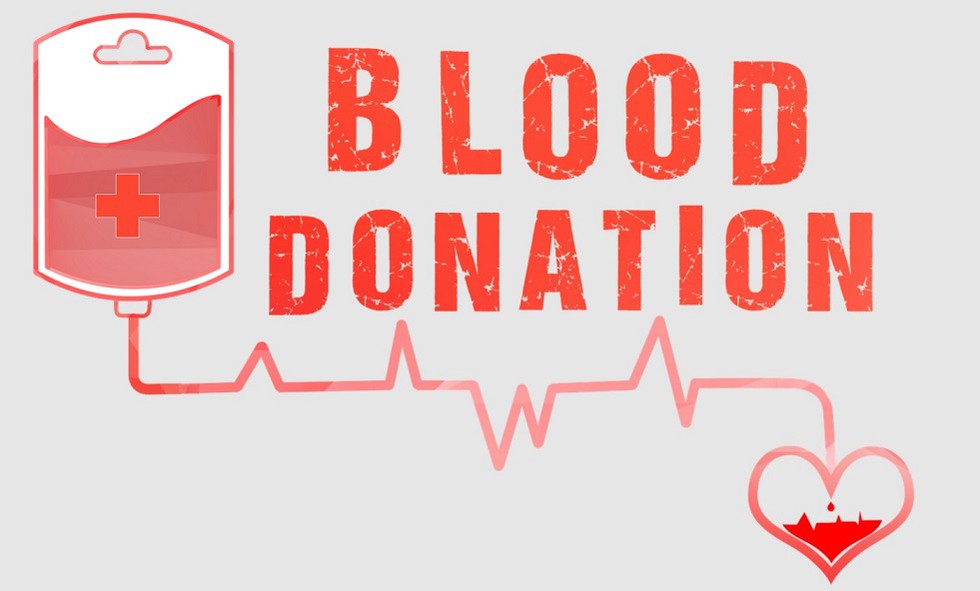
About:
- This was the largest country-wide Blood Donation Drive. The campaign was aimed at increasing awareness regarding regular non-remunerated voluntary blood donations and ensure that blood or its components are available, accessible, affordable and safe.
- As per 2021 statistics, India’s annual requirement is around 1.5 crore units.
- In India, the regulatory framework for blood donation and blood bank management rests with the Central Drugs Standard Control Organisation, while technical bodies like the National Blood Transfusion Council and National AIDS Control Organisation formulate guidelines and recommendations for transfusion medicine and blood bank management.
3. EAST ASIA SUMMIT (EAS)
Minister of Commerce and Industry, Anupriya Patel, attended East Asia Summit Economic Ministers’ Meeting in Siem Reap City of Cambodia.
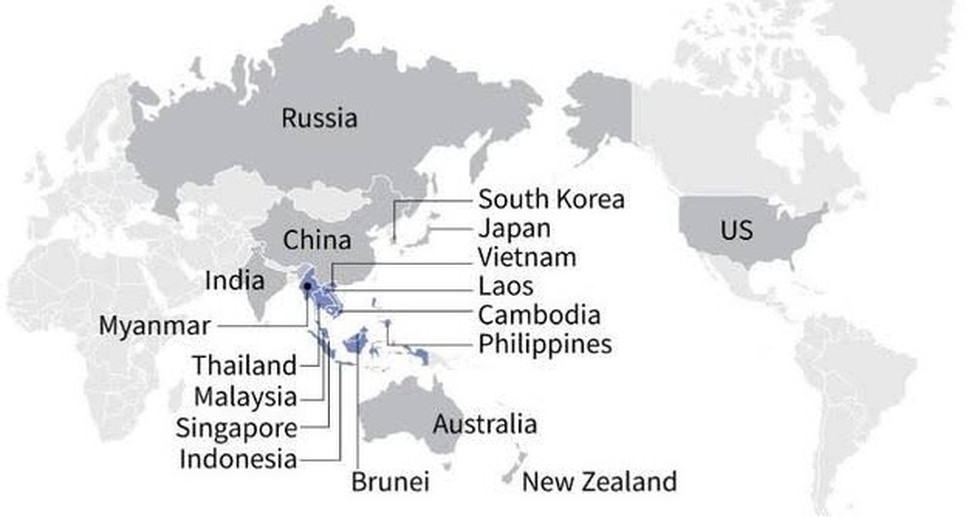
About:
- The meeting saw representation from all 10 ASEAN countries as well as eight partner countries including Australia, China, India, Japan, New Zealand, South Korea, Russia and the US.
- The East Asia Summit (EAS) is the Indo-Pacific's premier forum for strategic dialogue.
- The EAS has 18 members - the ten ASEAN countries (Brunei, Cambodia, Indonesia, Laos, Malaysia, Myanmar, the Philippines, Singapore, Thailand, Vietnam) along with Australia, China, India, Japan, New Zealand, the Republic of Korea, Russia and the United States. ASEAN leads the forum, and the chair position rotates between ASEAN Member States annually.
- The EAS calendar culminates in the annual Leaders' Summit, which is usually held alongside ASEAN Leaders' meetings in the fourth quarter of every year.
- In addition to the Leaders' Summit, meetings of EAS Foreign Ministers and Economic Ministers are held annually.
4. INDIA’S FIRST SWACHH SUJAL PRADESH
Union Jal Shakti Minister Gajendra Singh Shekhawat has declared Andaman and Nicobar Islands as India's first Swachh Sujal Pradesh.
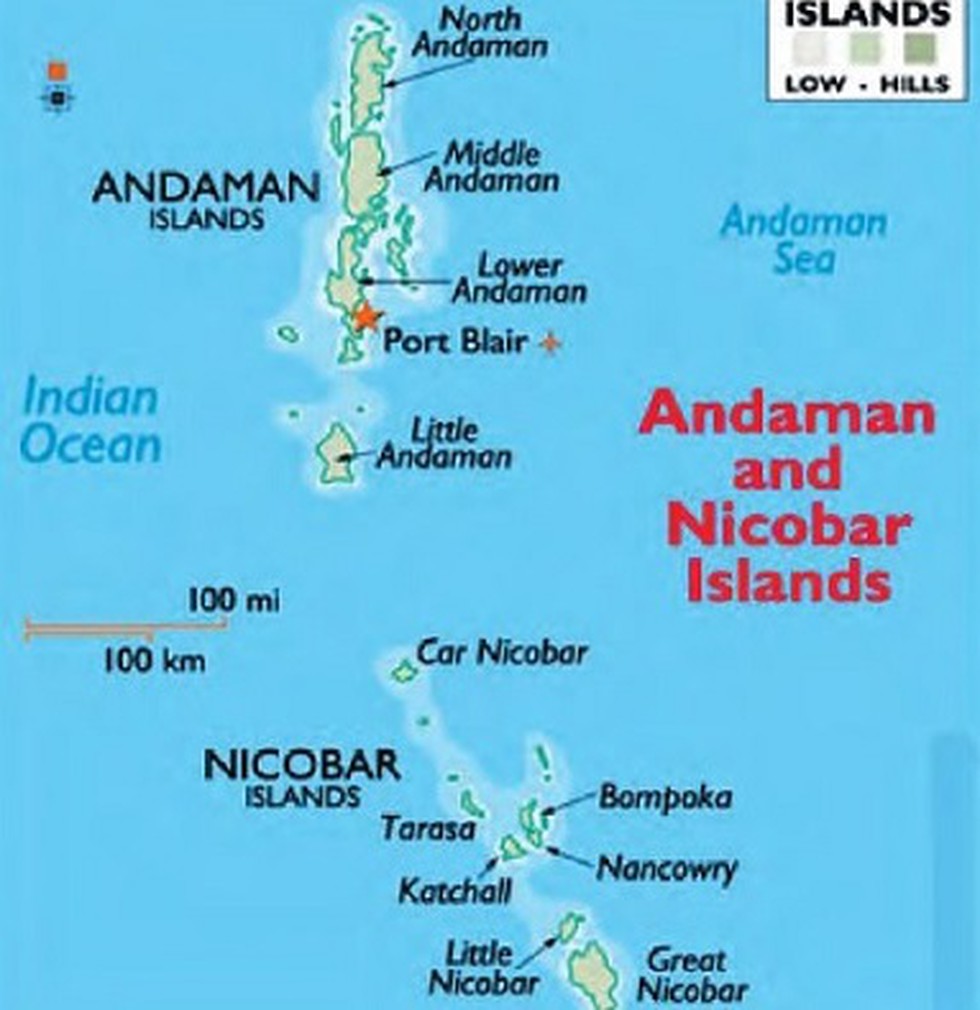
About:
- Now, all villages of Andaman and Nicobar Island have been certified as Har Ghar Jal and verified as open defecation free - ODF plus.
Source : All India Radio
5. INTERNATIONAL DAY OF DEMOCRACY 2022
International Day of Democracy is celebrated annually on September 15th across the world to strengthen democracies and highlight its values and principles.
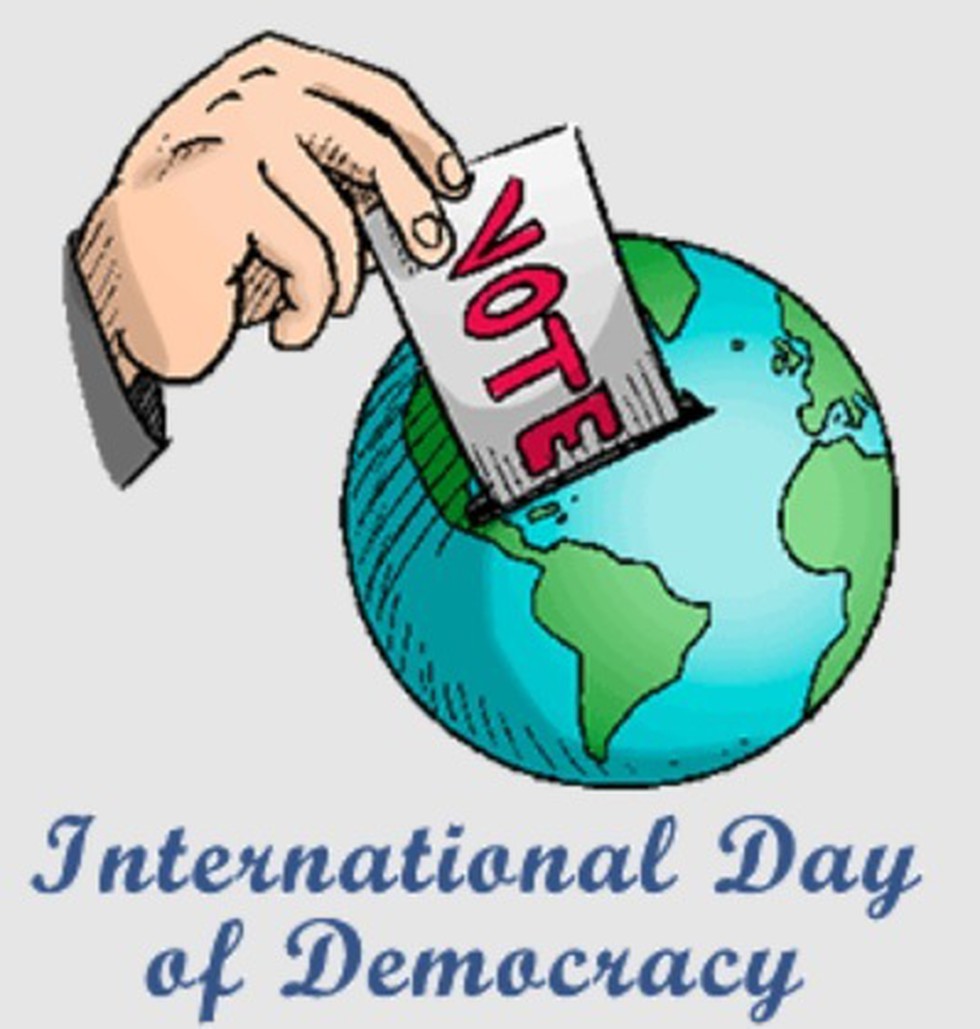
About:
- It was established through a resolution passed by the UN General Assembly in 2007, encouraging governments to strengthen and consolidate democracy.
- This year, the Day will focus on the importance of media freedom to democracy, peace, and delivering on the Sustainable Development Goals.
- On the 15th anniversary of the Democracy Day, UN Secretary General António Guterres said that democracy is backsliding across the World.
- Background: In September 1997 the Inter-Parliamentary Union (IPU) adopted a Universal Declaration on Democracy. That Declaration affirms the principles of democracy, the elements and exercise of democratic government, and the international scope of democracy.
Source: All India Radio
6. WORLD OZONE DAY
World Ozone Day, also known as the International Day for the Preservation of the Ozone Layer, is observed annually on September 16 to bring attention to the ozone layer and the dangers of ozone depletion.
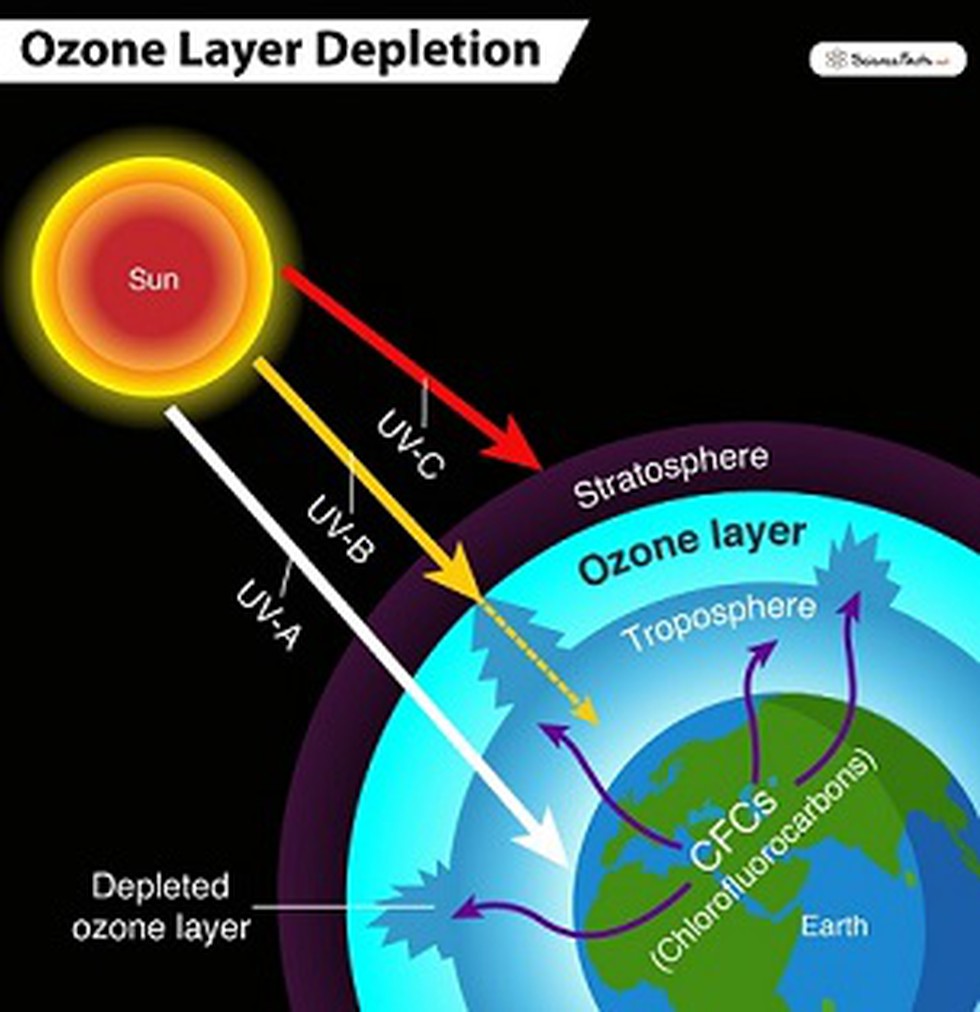
About:
- This years theme is “Montreal Protocol@35: Global Cooperation Protecting Life on Earth” which recognises the wider impact the Montreal Protocol has on climate change.
- In 1994, the UN General Assembly proclaimed 16 September the International Day for the Preservation of the Ozone Layer, commemorating the date of the signing, in 1987, of the Montreal Protocol on Substances that Deplete the Ozone Layer.
- Montreal Protocol is an international treaty designed to protect the ozone layer by phasing out the production of numerous substances that are responsible for ozone depletion.
- It was agreed in 1987 and entered into force in 1989.
- Due to its widespread adoption and implementation, former UN Secretary-General Kofi Annan hailed it as perhaps the single most successful international agreement.
7. NATIONAL LOGISTICS POLICY
Prime Minister Narendra Modi unveiled the National Logistics Policy that seeks to address challenges facing the transport sector and bring down the logistics cost for businesses from 13-14% to a single digit.
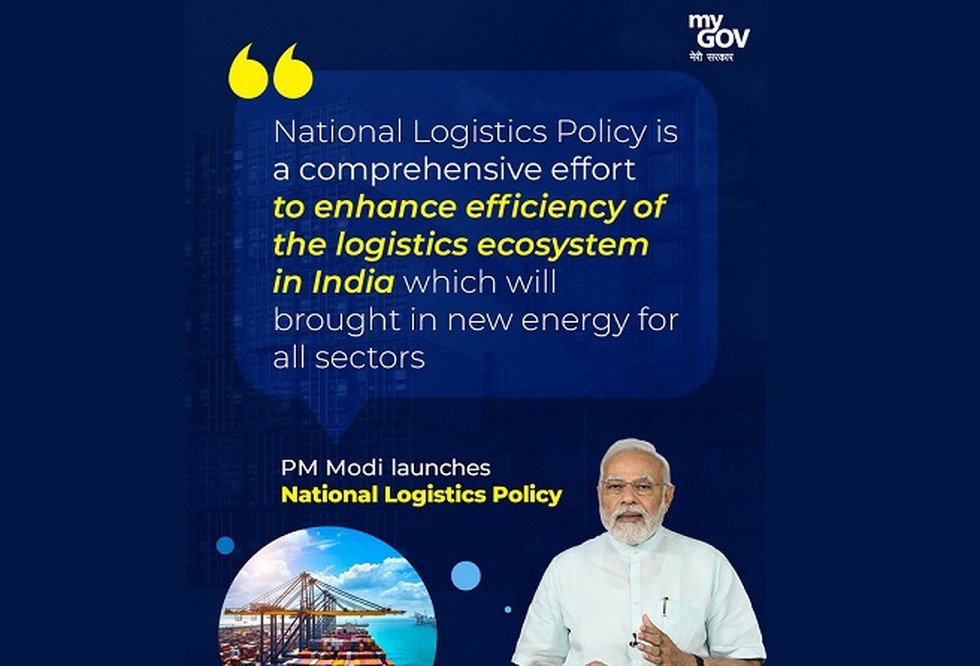
About:
- The policy is aimed at bringing down the time & cost of transportation of industrial products. It will also prevent damage to agricultural products by providing faster transportation.
- The Unified Logistics Interface Platform will bring all digital services related to the transportation sector into a single portal, freeing the exporters from a host of very long and cumbersome processes.
- Under the policy, a new digital platform - Ease of Logistics Services - has also been started.
- PM Gati Shakti National Master Plan will work in tandem with the National Logistics Policy.
- The Policy, which focuses on re-engineering, digitisation and multimodal transport, will further boost ‘ease of doing business for all industries and stakeholders.
8. ETHEREUM MERGE
Ethereum, the world’s second most valuable cryptocurrency, has completed a significant software overhaul which promises to ramp up security of the cryptocurrency while claiming to cut down on its carbon footprint, nearly entirely.
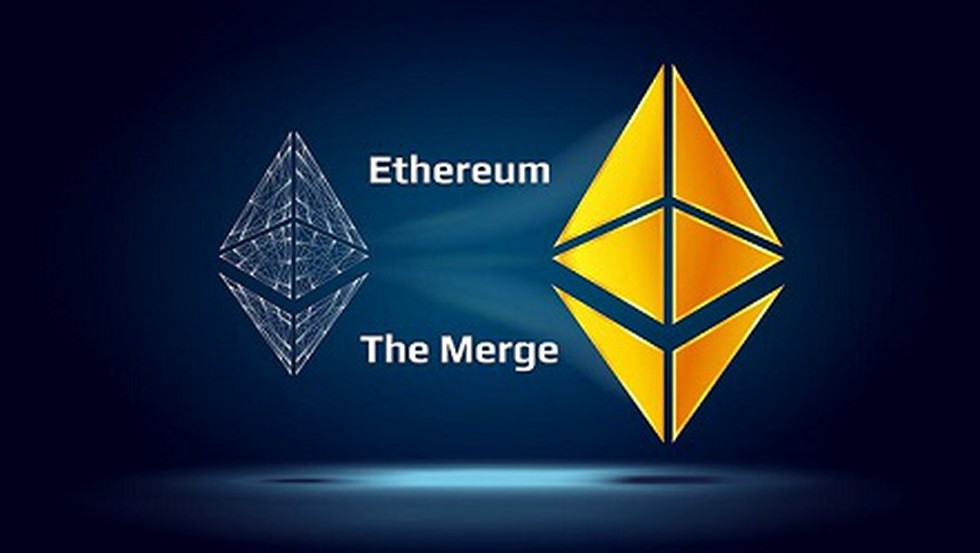
About:
- The revamp, known as ‘The Merge,’ will cast aside the need for crypto miners and gigantic mining farms, who had previously driven the blockchain under a mechanism called ‘proof-of-work’ (PoW).
- Instead, it has now shifted to a ‘proof-of-stake’ (PoS) mechanism that assigns ‘validators’ randomly to approve transactions and earn a small reward.
- The move to PoS will reduce ethereum’s energy consumption by nearly 99.95 per cent.
What has exactly changed?
- Ethereum is still a decentralised platform, but under the new concept, it would not need miners and mining farms to authenticate transactions anymore.
- Instead, a validator will be randomly assigned using an algorithm from a pool of people who ‘stake’ their coins, which essentially means pledging at least 32 Ethereum tokens on the network.
- This would entirely eliminate the need for miners on the Ethereum network.
9. PARTH
The Indian Coast Guard successfully rescued 19 people from Motor Tanker Parth, a Gabon-flagged vessel, which sank on September 16, 41 nautical miles off the Ratnagiri coast.
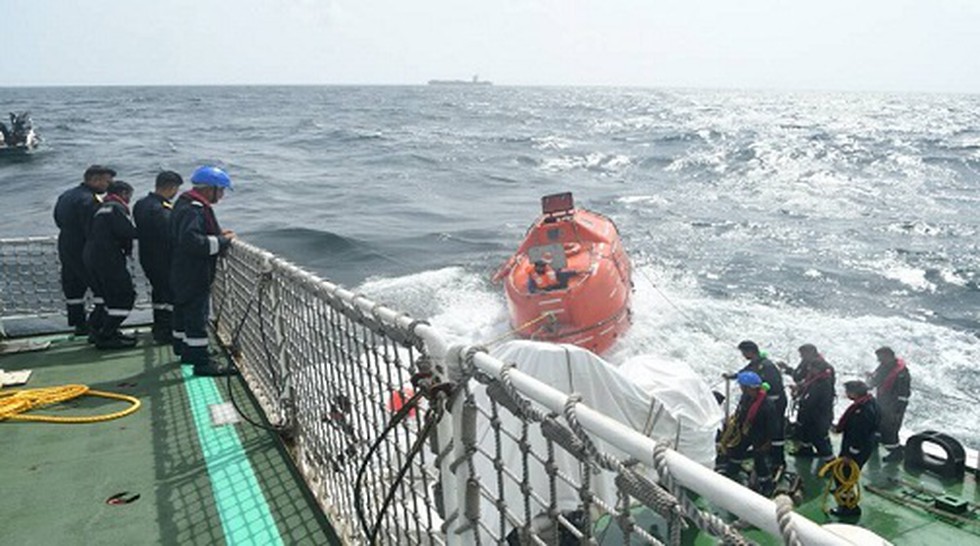
About:
- Within minutes of receiving the distress call, the Indian Coast Guard’s Marine Rescue Coordination Centre (MRCC) in Mumbai swung into action.
- Parth was a 102 metres-long vessel that was made in 2008. It was carrying 3,911 metric tonnes of Asphalt Bitumen and travelling from New Mangalore in Karnataka to Khor Fakkan on the Gulf of Oman in the UAE when there was an ingress of water in one of its compartments.
Is the sinking of the vessel an environmental hazard?
- The fishing ministry has cautioned fishermen from Malvan to Deogad in Maharashtra to look for marine pollution as the vessel was carrying a lot of fuel. Besides, bitumen is also a substance hazardous to ocean life.
- The shipping ministry said it will now put markers on charts for all vessels to be alert in the area about the sunk vessel.
10. COLOUR REVOLUTIONS
Chinese President Xi Jinping on September 16 appealed to Russia, India, and other members of the Shanghai Cooperation Organisation (SCO) to cooperate with each other in order to prevent foreign powers from destabilising their countries by inciting “colour revolutions”.

About:
- Colour revolutions refer to a series of uprisings that first began in former communist nations in Eastern Europe in the early 2000s, but are also used in reference to popular movements in the Middle East and Asia.
- Most have involved large-scale mobilisation on the streets, with demands for free elections or regime change, and calls for removal of authoritarian leaders.
- Orange Revolution: It refers to a series of protests that occurred in Ukraine between November 2004 and January 2005.
- Tulip Revolution: Also called the First Kyrgyz Revolution, the movement led to the ouster of Kyrgyzstan’s President Askar Akayev in early 2005.
- Jasmine Revolution: The popular uprising that occurred between December 2010 to January 2011 in Tunisia was in response to the underlying corruption, unemployment, inflation and lack of political freedoms in the country.
Source : Indian Express





























































































































































.png)
.png)
.png)
.png)
.png)


.png)
.png)
.png)





.png)
.png)






.png)
.png)
.png)
.png)
.png)
.png)
.png)
.png)
.png)

.png)







.png)
.png)


.png)
.png)
.png)


.png)

.png)
.png)





.jpg)

.png)
.png)


.png)

.png)
.png)
.png)

.jpg)

.jpg)


.png)

.png)
.png)
.png)
.png)
.png)
.png)
.png)
.png)
.png)
.png)




.png)

.png)





.png)
.png)
.png)
.png)
.png)
.png)
.png)
.png)
.png)
.png)
.jpg)
.jpg)

.png)
.png)
.png)
.png)
.png)
.png)
.png)
.png)
.png)
.png)
.png)
.png)
.png)
.png)
.png)
.png)
.png)
.png)
.png)
.png)
.png)
.png)



.png)
.png)

.jpg)
.jpg)


.jpg)
.jpg)
.jpg)
.jpg)
.jpg)

.jpg)








.jpg)
.jpg)
.jpg)
.jpg)
.jpg)

















.jpg)
.jpg)







.jpg)


















.jpg)
.jpg)



























































































.jpg)
.jpg)


























.jpg)

.jpg)










.jpg)








.jpg)




.jpg)










.jpg)


















.jpg)












































.jpg)














.jpg)
.jpg)
.jpg)





.jpg)

.jpg)
.jpg)





































































.jpg)


































.jpg)
.jpg)
















































.jpg)












.jpg)


.jpg)




.jpg)
.jpg)
.jpg)

.jpg)
.jpg)
.jpg)
.jpg)

.jpg)
.jpg)
.jpg)

.jpg)
.jpg)
.jpg)
.jpg)
.jpg)
.jpg)
.jpg)
.jpg)

.jpg)


.jpg)
.jpg)
.jpg)
.jpg)
.jpg)
.jpg)
.jpg)
.jpg)
.jpg)
.jpg)











.jpg)
.jpg)





.jpg)
.jpg)
.jpg)
























.jpg)
























.jpg)









.jpg)
.jpg)







.jpg)
.jpg)









































.jpg)
.jpg)
.jpg)
.jpg)
.jpg)

.jpg)
.jpg)
.jpg)
.jpg)
.jpg)


.jpg)
.jpg)
.jpg)
.jpg)
.jpg)

.jpg)
.jpg)
.jpg)
.jpg)
.jpg)
.jpg)
.jpg)
.jpg)
.jpg)
.jpg)
.png)

.png)
.png)

.png)
.png)
.png)
.png)


.jpg)
.jpg)

.jpg)
.jpg)
.jpg)

.png)
.png)
.png)
.png)
.png)
.png)
.png)

.png)
.png)
.png)
.png)
.png)
.png)
.png)
.png)
.png)
.png)





































































-min.png)



.png)




.png)








































